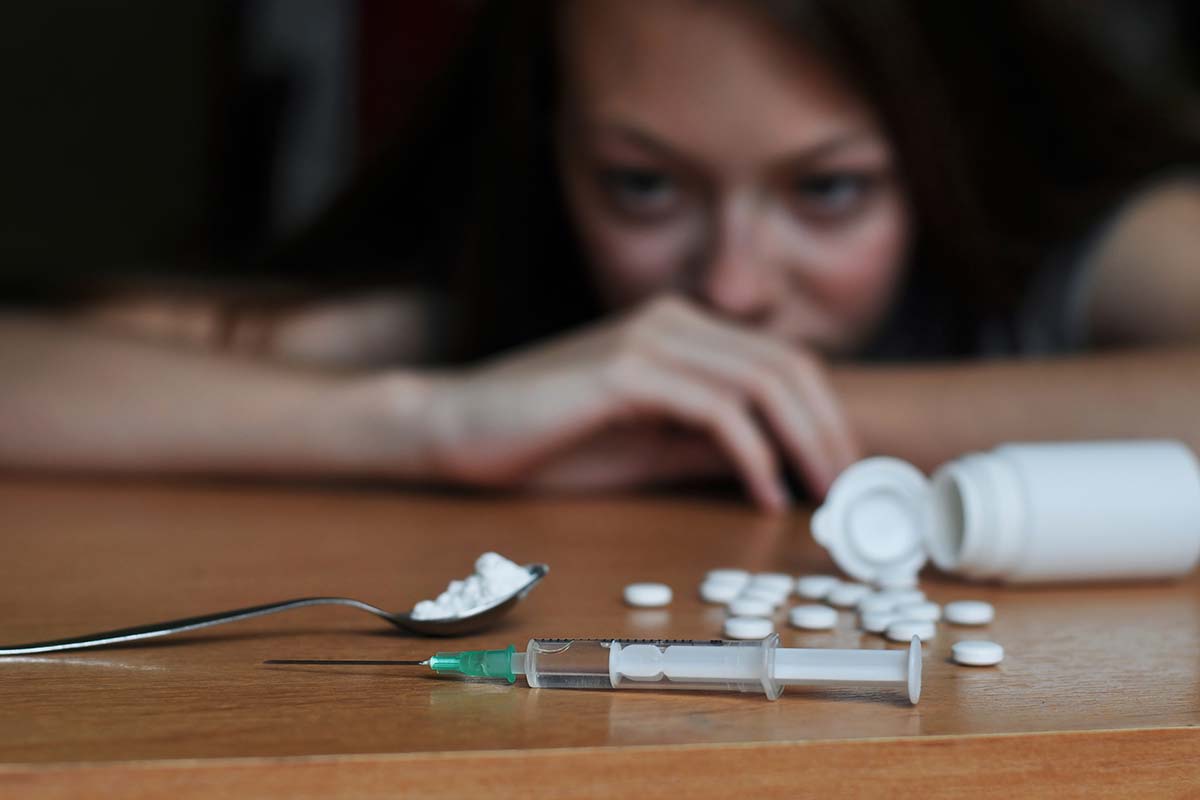In 2017, more than 70,000 people lost their lives to a drug overdose; many of them had an addiction disorder. Most will have also had family members wondering what they could have done differently or how they missed the signs. What are the symptoms of addiction?
What Is Addiction?
Addiction is a chronic condition that affects the brain. People with addiction engage in behaviors that put them in pursuit of the “reward” their brain offers when they use a drug, typically the release of a feel-good chemical like dopamine.
Addiction is a potentially disabling condition, one that comes with severe consequences, both physically, personally, and emotionally. The symptoms of addiction vary based on the person and the substance. There are some commonalities, though.
Psychological Symptoms Of Addiction
The symptoms of addiction can be broken down into three categories:
- Psychological
- Social
- Physical
Psychological symptoms involve how drug use affects a person’s mental health. Compulsion, for example, is a mainstay of addiction. The changes made to the brain through drug use make it challenging to go without the substance because they crave the “high” it offers them. The need to use the drug is absolute despite any negative consequences it brings with it, such as financial problems or physical illness.
Social Symptoms Of Addiction
Social symptoms involve how someone with an addiction relates to others. They make sacrifices, for instance, to support their habit. Maybe they give up doing a social activity they love either because they don’t want anyone to notice their drug use, or they would rather get high.
Denial is one of the common symptoms of addiction. They will deny their drug use even when it seems obvious there is a problem. They may become protective of their personal spaces like their home or room, for fear of their drugs being discovered.
Sudden and hard to explain legal problems can be a social sign, as well. For example, if they end up in jail one night but refuse to explain why, get DWIs, or begin stealing money or valuables.
Physical Symptoms Of Addiction
It is the physical symptoms of the disease that may be the most noticeable to family and friends, though. The most obvious sign of addiction is withdrawal. They may start sweating or seem like they have the flu often. You may notice them vomiting or trembling. These physical signs can indicate withdrawal from a substance.
You may see rashes on their body or face from scratching or picking. You may also notice infections from skin problems or injections. Under the skin, you may also see visible veins.
People who smoke drugs tend to develop respiratory diseases that may present with coughing or hoarseness. Those who snort drugs may seem to have sinus issues and nasal congestion. There may be redness around their nostrils, too.
Changes in sleeping habits can be a sign of withdrawal or the use of a stimulant like ecstasy. You may notice this individual goes days without sleeping. They may look disheveled and haggard because of the lack of sleep.
What To Do If You Notice Signs Of Addiction
Westwind Recovery® is an addiction treatment center with 15 locations in California. They specialize in mental health primary care and treating the members of the LGBTQ community.
Westwind offers inpatient treatment, outpatient services, and managed detox. Out services include:
- Primary mental health
- Family therapy
- Medication-assisted treatment (MAT)
- Neuroscience
- Pain management
They offer specialized programs, as well, such as adventure therapy and virtual reality meditation.
If you or someone you love has an addiction, give us a call at 855.340.8832 to make an appointment to tour our facility and talk about treatment options.

Dr. Deena is the Chief Clinical Officer of Westwind Recovery®, an award-winning outpatient treatment center in Los Angeles where she oversees the clinical and administrative program and treatment methods. Dr. Deena is a doctor of psychology and licensed clinical social worker since 1993. LCSW #20628. Originally from the East Coast, Dr. Deena has worked running treatment centers, worked as a therapist in psychiatric hospitals as well as school settings and currently has a thriving private practice in the LA area. Dr. Deena has appeared regularly on the Dr. Phil Show as an expert since 2003. She has also been featured on many other TV shows, podcasts and has contributed to written publications as well as podcasts.



